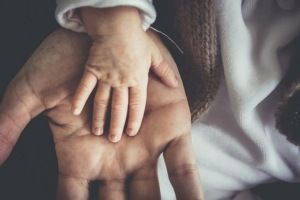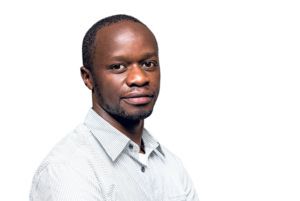Opinion
Straight Up: For Baby Ayah, with compassion
Zach Khadudu
This article is more than 4 years old.

Parents and their infants: A new study shows that ‘baby talk’ has similar elements across languages. (photo: Pixabay)
I write this piece on the eve of Mother’s Day 2021. Social media is awash with thank-you posts for mums the world over. All well-deserving. For a mother’s love compares to none.
Indomitable spirit
One such mum can be found on the Danish Island of Bornholm. Kathure Mithika together with her husband Frank Lundt have over the last few months put on a spirited battle to fundraise for the treatment of their child.
Baby Ayah’s story is one of resilience and determination. It’s a manifestation of the indomitable spirit of parents ready to travel to the edge of the world for their little one.
Baby Ayah suffers from Spinal Muscular Atrophy (SMA), a genetic condition that causes muscle weakness and atrophy (muscle degeneration).
Warning signs
SMA can affect a child’s ability to crawl, walk, sit up, and control head movements. Severe SMA can damage the muscles used for breathing and swallowing.
Experts say there are four types of SMA. Some show up earlier and are more severe than others. All types of SMA need ongoing treatment by a medical care team. There’s no cure for SMA, but treatment can help children with SMA live a better life.
Speaking to American broadcaster CNN, Ayah’s parents recalled how in her first months of life she was hitting all the growth-milestones. Then at nine months, things took a turn. Baby Ayah started having difficulties sitting unassisted, lifting her head, clapping – things she had previously learned to do.
Consultations with Danish healthcare experts revealed Ayah was suffering from SMA. And worse, the most promising treatment for the condition is not approved in Denmark yet. They had to look elsewhere. So look they did.
So very dear
Their search led to Zolgensma, a gene therapy treatment approved by the American Federal Agency in 2019 for the treatment of SMA in the US. While not a sure-cure, the drug is said to reproduce gene copies that significantly improve the muscle movement and function of children with SMA.
Sadly, though, at a prohibitive cost of 2 million dollars (around 14 million kroner)
Zolgensma can also claim the uncoveted title of the world’s most expensive drug.
To be effective, Zolgensma will need to be administered before baby Ayah’s second birthday, so it is a race against time. Frank and Kathure have accordingly reached out to the world for help.
They have knocked on every door, given countless interviews, appealed to all and sundry, and run round-the-clock fundraisers. So far, they have raised slightly over a million dollars – just half of what is needed.
How we can help
They need your help. Any help. Every dollar and every krone goes a long way.
Baby Ayah, their bubbly bundle of joy is determined to beat this. We can help.
Contributions can be sent via MobilePay (463363), transfer (Reg: 5340, Account number: 241876) or GoFundMe (search for Little Ayah).

About
Zach Khadudu
Zach Khadudu is a Kenyan by birth and a journalist by choice. He is a commentator and an activist with a passion for refugee and human rights. He may share a heritage with a certain US president, but his heart lies elsewhere – in the written and spoken word.










































